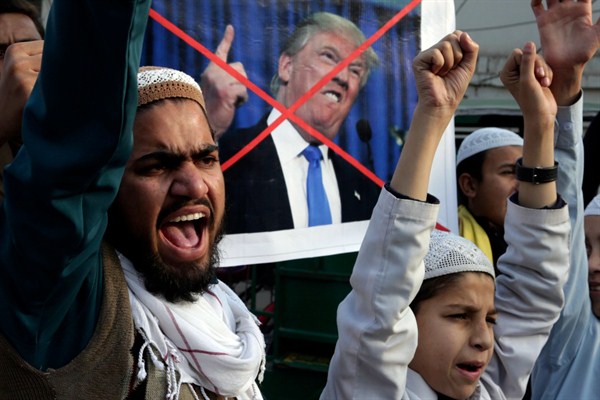Soon after 9/11, President George W. Bush recognized that the United States needed Pakistan’s cooperation to eradicate the training camps in Afghanistan where al-Qaida planned the attacks. Pakistani President Pervez Musharraf declared that his nation was a full partner in the new “war on terror.” A few years later, Bush designated Pakistan a major non-NATO ally. Since 2002, Pakistan has received more than $33 billion in economic and security assistance from the United States, while the American military greatly expanded cooperation with its Pakistani counterpart.
But this was always a deeply troubled partnership. Pakistan, especially the politically dominant Pakistani military, defined its national interests very differently than the United States, seeing a weak or conflict-ridden Afghanistan as a benefit rather than a threat. As a result, Pakistan provided sanctuary to some extremist groups targeted by the United States or, at least, did not make a major effort to exterminate or expel them. For years, the Afghan Taliban and the Haqqani network have killed Americans in Afghanistan, then retreated to their bases in Pakistan. Al-Qaida’s leaders, including Osama bin Laden and his successor Ayman al-Zawahiri, have lived in and plotted from Pakistan, as did long-time Taliban leader Mullah Mohammed Omar.
The Bush and Obama administrations struggled mightily with this problem. They recognized the importance of intelligence-sharing with Pakistan and depended on Pakistani ports to support the U.S. military effort in Afghanistan. But they were also appalled at Islamabad’s support for extremist movements. Both administrations tried a variety of means to alter Pakistani behavior, blending threats and inducements. Nothing worked.

